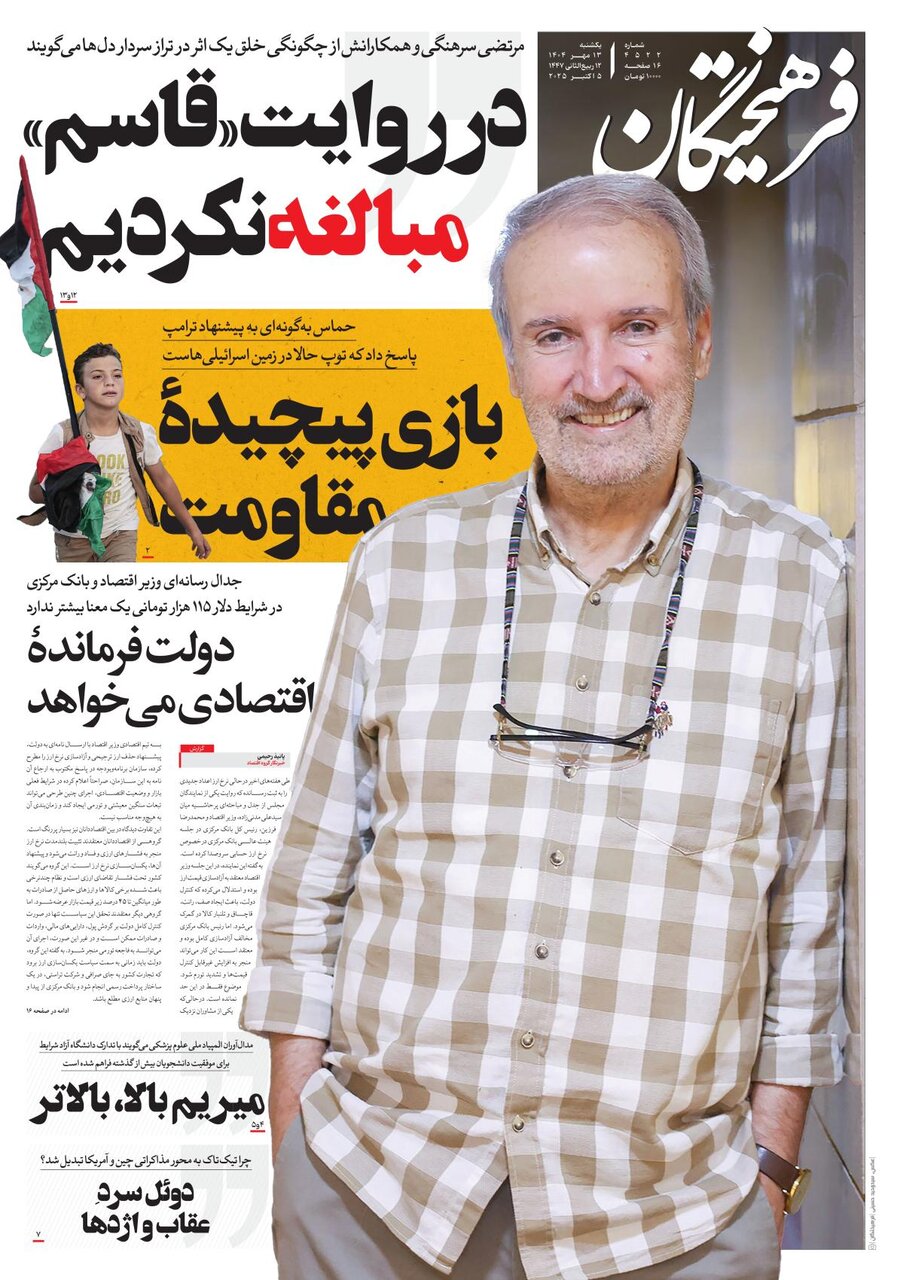Turkey's ties with Iran after snapback activation

TEHRAN - In an interview with Ali Heydari, an expert on Turkish affairs, Farhikhtegan discussed Ankara’s compliance with the sanctions against Iran.
He said: Iran did not expect Turkey to announce its compliance with the UN sanctions so quickly. Turkey's action is a symbolic political action, but a symbolic action also conveys its own message. The reason it is symbolic is that Turkey has implemented the sanctions according to the Security Council list, while most of those on the list have no presence or activity in Turkey. There will not be many changes, especially since China and Russia have announced that they will not support illegal and unfair sanctions. That is, in the strategic field, Iran will pursue its relations with China and Russia, and its relations with countries like Turkey will be in conventional fields.
Hamshahri: Israel's reputation has been damaged globally
Hamshahri discussed the worldwide disgrace Israel is faces because of its criminal conduct, writing: There is no solid and convincing evidence that Iran sought to incite war (with the Zionist regime). Iran has always sought to defend its interests, but it has never viewed war as the main approach. But the life of the Zionist regime lies in war and bloodshed. This puppet state, which has nothing of its own, is facing a nation that has a great civilizational history and has also designed a new model that many governments in the world may follow. Since the Zionist regime does not have a clear approach, it takes a stand against this model and discourse. Today, governments, institutions, and public opinion from Europe and the Americas to leading universities worldwide have condemned Israel. What is evident to everyone today is that the Islamic Revolution has been strong in its discourse and its core, namely, resistance, but it has never been the source of hot war.
Ettelaat: Tense conditions after snapback
Ettelaat’s analysis warned that Persian Gulf Arab states hosting US airbases fear the activation of snapback sanctions on Iran could trigger dangerous consequences and escalate into a war involving Iran, Israel, and the United States. It wrote: The Arab countries of the Persian Gulf are more vulnerable than any other party to the escalation of tensions. The presence of dozens of U.S. military bases in these countries exposes them to direct risk of possible Iranian reactions. Inside Iran, the economic pressure resulting from the sanctions could also provide the basis for social protests. Some analysts argue the true objective of the U.S. maximum pressure policy is to instigate a new proxy war with Iran in coordination with Israel. However, the experience of the past years has shown that Iran has chosen the path of resistance rather than giving in to external pressure because Tehran is not willing to surrender to Washington's tough conditions. Ultimately, what is observed in the region is a "diplomatic deadlock." Israel has kept the shadow of war so that it can justify a new attack at any moment. Arab countries are concerned that a new conflict will shatter their fragile security, and Iran, amid the pressure of sanctions and the threat of war, continues to emphasize resistance and maintaining red lines.
Iran: Prospects of Iran-Russia strategic partnership
In an article, the Iran newspaper discussed the strategic treaty between Tehran and Moscow that went into effect on October 2. The paper said: It is noticeable that Tehran and Moscow have reached this level of cooperation in a situation in which the region is in one of the most complex periods in its history, ranging from the rapid and critical developments between Iran and Israel to the uncertain future of the Ukrainian war and the shadow of Tel Aviv's continued adventurism in the Middle East. In such a context, the Comprehensive Strategic Partnership Treaty can be an important tool for the two countries to strengthen their cooperation to counter Western pressure and sanctions. In addition, the emphasis on cooperation in the fields of technology, energy, and investment shows that the two sides intend to go beyond political slogans and open a practical path to deepening economic and scientific ties. The implementation of the Iran-Russia strategic treaty should be seen as a focal point that emerged from a critical situation and was made meaningful by a clear message of resistance to Western hegemony. Moscow effectively announced that in the process of current developments, new fronts of alliances will be formed, and Iran and Russia have determined to be part of this new plan.
